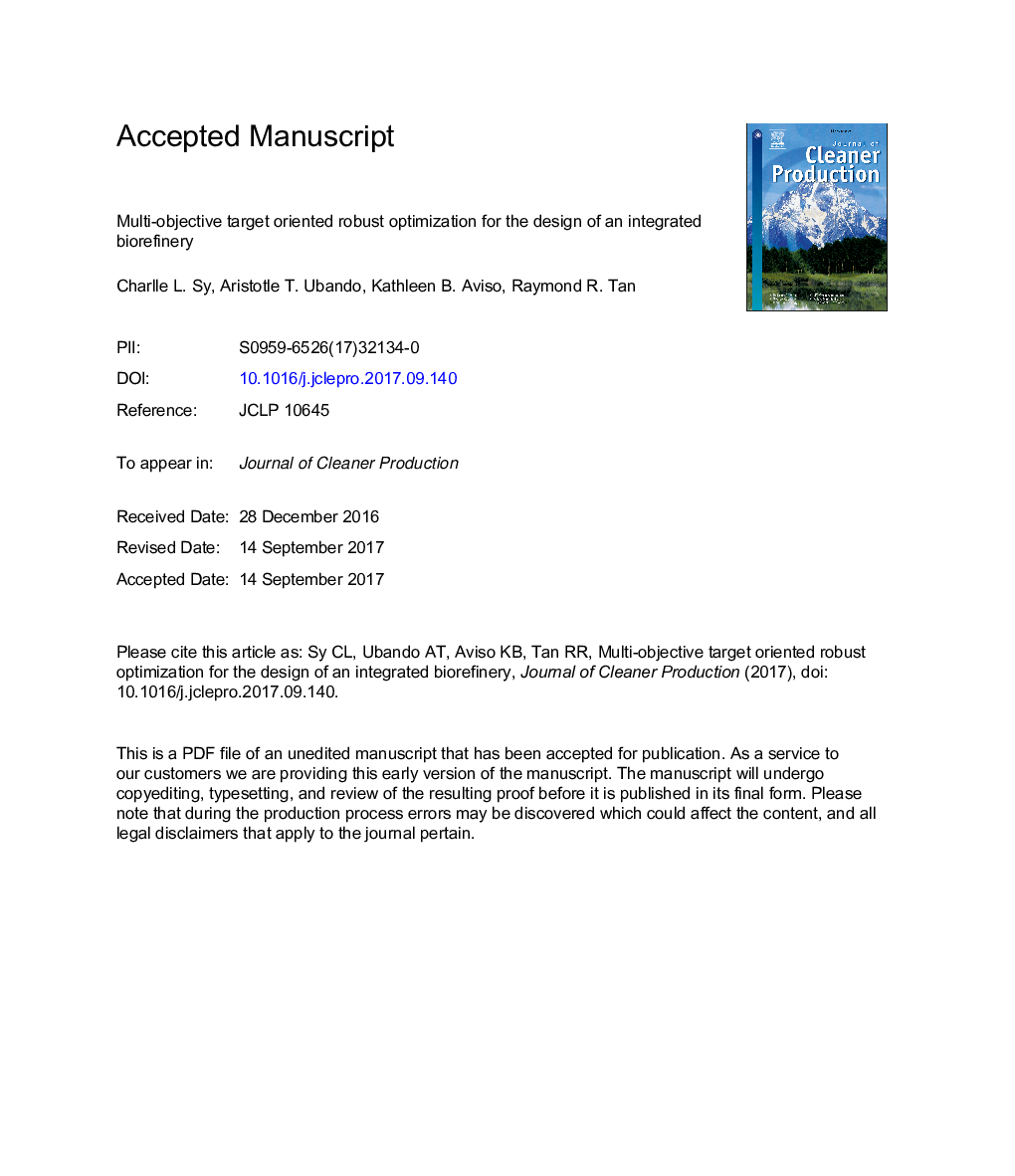| Article ID | Journal | Published Year | Pages | File Type |
|---|---|---|---|---|
| 5479236 | Journal of Cleaner Production | 2018 | 49 Pages |
Abstract
Integrated biorefineries offer an efficient way of producing biofuels while increasing economic potential through the production of valuable co-products. Such bioenergy systems can potentially reduce environmental footprints by reusing waste streams from other processes within the system. An integrated biorefinery utilizes multiple conversion technologies to produce an array of products, such as biofuels, biochemicals, and bioenergy, from biomass feedstocks. Methodologies such as mathematical programming models have been instrumental in the optimal synthesis and design of such complex systems. However, uncertainties in model parameters may result in economic losses or increased environmental emissions during actual operations. Uncertainties may be accounted for in the design procedure of an integrated biorefinery through target-oriented robust optimization methodology. This new approach identifies the optimal design of an integrated biorefinery by maximizing a robustness index against uncertainties. However, since practical engineering problems often involve satisfying multiple targets, a multi-objective target-oriented robust optimization approach is developed in this paper. This new approach allows the advantages of target-oriented robust optimization to be realized for multi-objective problems. A case study on the design of an integrated algal biorefinery, with both economic performance and environmental footprint considerations, is used to illustrate the methodology. Results of Monte Carlo simulation show that the robust optimal configuration of the integrated biorefinery is relatively immune to parametric uncertainties compared to the nominal optimum found using deterministic models.
Related Topics
Physical Sciences and Engineering
Energy
Renewable Energy, Sustainability and the Environment
Authors
Charlle L. Sy, Aristotle T. Ubando, Kathleen B. Aviso, Raymond R. Tan,
